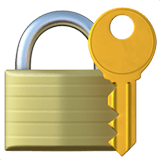
How to become self-employed in Luxembourg
Find out how to become self-employed, the requirements and conditions, and the opportunities for self-employment in the Grand Duchy.
There is no separation between self-employment and sole proprietorship in the Grand Duchy, i.e. sole proprietorship = self-employed persons. Private entrepreneur, self-employed person and individual enterprise are the same entities for Luxembourg.
Starting a sole proprietorship in Luxembourg is much easier than registering a full-fledged company as you will not need to draw up a memorandum of association, legalize your business with a notary and open an office. In this respect, self-employment as a form of entrepreneurship implies compliance with basic formalities before the state. However, on the other hand, individual entrepreneurs are more exposed to financial risks associated with running a business, for which they are personally liable. That is, for example, the entrepreneur is responsible directly and alone for debts.
A self-employed individual is any person who conducts business in his or her own name, be it:
- a trader;
- a private artisan, a craftsman, a farmer;
- a self-employed intellectual worker.
The legal status of a sole proprietor is determined by the type of activity the entrepreneur is engaged in, namely commercial activity or a regulated profession, such as a lawyer, architect, medical professional, etc.
The operations of sole traders, typically traders, artisans and craftsmen, are subject to the authority of one of the three chambers.
Chambre des métiers, CDM
Establishment dedicated to craftsmen and artisans. This chamber brings together more than 150 different professions: food, fashion, health and hygiene, mechanics, construction, multimedia, etc.
All the professions are grouped into three lists: List A and B requires proof of qualification, and List C does not require one. The qualification requirements for professions in the B list are usually lower than for those in the A list.
List А
List В
List С
Chambre de commerce
This chamber carries out commercial activities that do not belong to the Chamber of Skilled Trades and Crafts.
Chambre d’agriculture
The main objective of the Chamber of Agriculture is to contribute financially, socially and environmentally to a dynamic, balanced and sustainable agriculture.
There are five professional chambers in Luxembourg: in addition to those mentioned above, there is also the Chamber of Employees and the Chamber of Notaries. Any professional who falls under the jurisdiction of these institutions is always considered to be a member of one of them.
Regarding self-employed intellectual workers, they are divided into three categories.
Liberal professions requiring a business permit
Liberal professions requiring special authorization
Professions requiring special registration and/or accreditation
Luxembourg doesn't have an official "freelancer" status. Instead, it refers to individuals who work for clients based on contracts, similar to independent contractors. Here, being a sole proprietor and self-employed are essentially the same thing, and this structure is ideal for those who work entirely by themselves.
For loners only
Business licence
Social security
All entrepreneurs who want to open a sole proprietorship in Luxembourg must obtain the necessary permits and accreditations to conduct business. In order to demonstrate access to a profession, the applicant will need to confirm their education, especially if it was obtained outside the country. The Ministry of Economy may require the applicant to recognize the documents of specialization in order to decide on further authorization for access to commercial activity.
Read more
The next step is to obtain a business permit, while a number of professions also require other authorizations: for example, accreditation or special registration for doctors, people, working with minors, etc.
Entrepreneurs whose activities are considered commercial, artisanal or intellectual, so mostly liberal professions yet requiring a commercial authorization must obtain a business permit.





Where to apply for a permit
Entrepreneurs can apply for a business permit in several ways.


Anyone can get help applying for a permit through one of the following methods:
- contact the House of Enterpreneurship to arrange a personal meeting or a call;
- contact the Contact Entreprise of the Chamber of Skilled Trades and Crafts for advice;
- call or make an appointment with the General Directorate of Small and Medium Enterprises.
Applications are usually considered within 3 months of receiving a complete set of documents. If no response has been sent after the waiting period, you should contact the General Directorate of Small and Medium Enterprises to check the status of the application.
The application must be accompanied by proof of payment of stamp duty (droit de cachellerie) in one of the following formats
The price of the stamp is 50 euros and it can be purchased at the Office for Registration of Fees, Real Estate and VAT (AED) when requested in person.
The payment has to be sent to the Diekirch Revenue Office via bank transfer:
- IBAN: LU76 0019 5955 4404 7000
- BIC: BCEELULL
- Communication: «autorisation de commerce»
What documents are required
The application document set depends on whether or not the applicant maintains Luxembourg residency and the duration of it — specifically whether it is more or less than 10 years, as well as the type of future activity for which the business permit is requested.
To see the available information on the to obtain a business permit in Luxembourg, visit the official website Guichet.lu.
Check the official website Guichet.lu for a complete list and available information on the documents required to obtain a permit for craft and intellectual activities in Luxembourg.
Individual cases when obtaining a permit
Generally, a business permit must be requested when you want to engage in professional activities as a sole proprietor or with a company operating under your name. However, this authorization may not be always necessary, and sometimes the procedure may vary. Here are some cases to look at.
Foreigners residing outside the EU who plan to live and work as self-employed in Luxembourg must submit two applications at the same time: a long-term authorisation to stay and a business permit to operate in Luxembourg. The Ministry of Foreign Affairs can redirect your documents to the relevant department if you initiate the process.
Below are some of the cases which require clarification regarding the procedure for business authorization and commercial activity with the relevant offices.
- Self-employed traders and sales agents are required to obtain a business permit. For salaried individuals, no special authorization is required, but they must operate under the protection of their employer's business permit.
- Intellectual workers not included in the list of liberal professions must obtain a business license designed for commerce and services.
- If you sell goods for personal use, recycled articles, or items not originally purchased for resale, you do not need a permit. However, to participate in fairs or set up a website for selling, you need a business license.
- Special rules apply to lawyers, doctors, dentists, veterinarians and auditors. For them, the requirements for obtaining authorizations are regulated by special laws different from the usual ones.
- Journalism, editorial activities (except self-publishing) and educational school projects do not require a business permit. An exemption applies if annual turnover does not exceed 35,000 euros excluding taxes.
EU companies providing occasional and temporary services in Luxembourg do not need a business permit. However, in the case of skilled crafters and manufacturers, they should apply to the General Directorate for Small and Medium-sized Enterprises in advance.
Recieving a permit
The business permit will be sent online through your personal account on the state portal within 3 months, provided the Ministry's decision is positive. In addition, the communication will be maintained via post to the company's address.
A special barcode is provided for each business permit. This code must be placed on postal mailings, websites, price lists, invoices, and window displays of all outlets, as well as on informational signs.
Business owners need to inform the General Directorate for Small and Medium-Sized Enterprises within a month about any major changes, such as getting a travel package guarantee, opening or closing branches, changing the company's location, or if the business manager moves house. These updates can be sent either by mail or email.
Regarding the the withdrawal of a business license, this can happen under certain conditions. For example, if you do not inform the ministry of the change of principal residence of the director within a month, if you do not perform activities for more than two years, if you go bankrupt, if you lose professional reliability, and so on.
The Center commun de la sécurité sociale, or CCSS, is the Joint Social Security Center where the self-employed individuals in Luxembourg must register to enjoy social support. The social security system covers a wide range of risks such as illness, disability, death, old age, accidents at work and on the road.
Self-employed professionals must enroll in the social security system by submitting the declaration form within 8 days after commencing their activities.
Independent workers are individually responsible for paying their social contributions — both the employee's share and the employer's share — in proportion to their gross earned income before taxation.
What documents are required
To enroll in CCSS, you only need to submit a special form called Déclaration d'entrée - indépendants. You can do this in several ways.


Once you register as self-employed, you will be able to order your Social Security card online at the CCSS website.
A sole proprietor carrying out commercial activities in Luxembourg may set up a company to conduct business under the appropriate legal form (so-called sole proprietorship). Traders, as well as employees belonging to certain other professions, need to join the Register of Commerce and Companies - RCS (Registre de commerce et des sociétés).
Unique trade name
You can also check the availability of the business trade name on the Registry — the name should be unique, and provide transparent information about your planned activities.
What documents are required
The documents necessary for registration with RCS are normally submitted online through the official website using a LuxTrust certificate. You should attach the following scanned documents to the application:
- Business owner's full name,
- Company's trade name and possible abbreviations and acronyms,
- Full business address where the operation is carried out,
- Objective of the business,
- Date of establishment of the business,
- Complete information about the managers and responsible persons, including their duties and personal status information,
- Business authorization reference number,
- Information on established contracts, transactions and terminations.
Any individual or legal entity that carries out economic activities autonomously and on a regular basis is considered to be a VAT taxable person. To register as a VAT payer, you must file a declaration with the Administration de l'enregistrement, des domaines et de la TVA, commonly known as the AED.
Persons for whom registration with the AED is mandatory must register within 15 days after starting the business.
If a self-employed person is engaged in an activity that grants them taxpayer status, they must register as a VAT payer. Exemption from mandatory VAT registration is provided for those whose annual turnover is less than 35,000 euros. However they still need to file a declaration, which can be done remotely.
How to register



Frequently Asked Questions (FAQ)
How do I become self-employed in Luxembourg?
In Luxembourg, the labels "self-employed," "sole proprietor," and "private entrepreneur" are used interchangeably. Setting up a sole proprietorship here is simpler than establishing a company. There's no requirement to ratify articles of association, nor is there a need to engage a notary.
To initiate a sole proprietory business in Luxembourg, you must secure a business permit, obtain a VAT number from the Registration and Domain Administration, and register with the Combined Center for Social Security (CCSS).
How much does it cost to get a business permit?
In addition to this fee, you may have to bear the costs associated with the execution of documents and the statutory capital of the company, if you will create it.
How do the self-employed workers get health insurance in Luxembourg?
In Luxembourg, state social support is available for individual workers. To avail of it, you need to apply directly to the Combined Center for Social Security (CCSS). Typically, the responsibility of registering an employee and covering a portion of the fees is on the employer. However, for individual entrepreneurs and those self-employed, the individual must personally apply for and secure their insurance.
Running a business in Luxembourg requires precision in paperwork. EasyBiz takes care of the accounting, taxes and administrative tasks so you can focus on growing your business.
Source: guichet.public.lu, guichet.public.lu, guichet.public.lu, guichet.public.lu
We took photos from these sources: Pexels, Sora Shimazaki